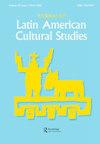Indigenising Colombia’s Marijuana Boom: Race and Settler Colonialism in Pájaros de verano
IF 0.3
4区 社会学
Q4 CULTURAL STUDIES
引用次数: 0
Abstract
Colombian directors Cristina Gallego and Ciro Guerra’s award-winning film Pájaros de verano (2018) has garnered praise for its genre-bending fictional account of Colombia’s 1970s marijuana boom but has not yet been the subject of scholarly analysis. The film’s production methods and ethnographic depictions of the Colombian Wayuu people give an appearance of social commitment to its Indigenous subjects. However, I argue that narratively, it reinforces a false account of the marijuana boom that absolves the mestizo Colombian state of its role in the displacement and marginalisation of the Wayuu people within the context of the Colombia’s drug war. This article critically analyses Pájaros de verano’s racialised representation of drug trafficking and its seemingly contradictory referentiality to both New Latin American Cinema and Hollywood Westerns, demonstrating the film’s ideological investment in upholding dominant narratives about Colombian drug trafficking and the displacement of Indigenous communities.哥伦比亚大麻热潮的本土化:夏季鸟类中的种族和定居殖民主义
哥伦比亚导演克里斯蒂娜·加列戈和西罗·格拉的获奖电影Pájaros de verano(2018)因其对哥伦比亚20世纪70年代大麻热潮的虚构描述而获得赞誉,但尚未成为学术分析的主题。这部电影的制作方法和对哥伦比亚瓦尤人的民族志描述,给了它的土著主题一种社会承诺的外观。然而,我认为,从叙事上讲,它强化了对大麻繁荣的错误描述,即在哥伦比亚毒品战争的背景下,免除了哥伦比亚混血儿国家在瓦尤人流离失所和边缘化中的作用。本文批判性地分析了Pájaros de verano对毒品走私的种族化表现,以及它对新拉丁美洲电影和好莱坞西片的看似矛盾的参考,展示了这部电影在维护哥伦比亚毒品走私和土著社区流离失所的主流叙事方面的意识形态投资。
本文章由计算机程序翻译,如有差异,请以英文原文为准。
求助全文
约1分钟内获得全文
求助全文

 求助内容:
求助内容: 应助结果提醒方式:
应助结果提醒方式:


